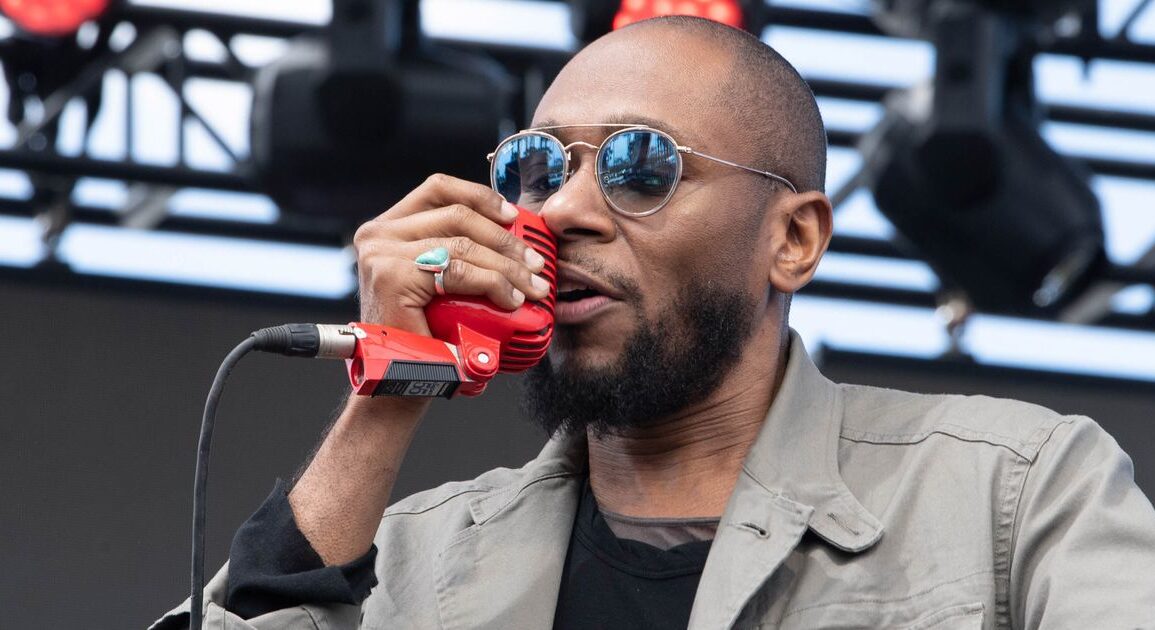Around the turn of the last century, there was a cold war of sorts between so-called “real hip-hop” – lyricists who put effort into mind-blowing metaphors, similes and rhyme schemes – and the commercial hip-hop of Puff Daddy’s post-Biggie Bad Boy Records, along with No Limit Records and Cash Money Records’ Pen and Pixel cover takeover.
Hip-hop fans who rejected the genre’s commercialism at the time adored Mos Def (now Yasiin Bey), Black Star and its Rawkus Records ilk. In the 2002 film “Brown Sugar,” Bey’s character, Cavi, is the “hero” of hip-hop, while the Puffy-esque “villain,” Simon (played by Wendell Pierce), peddled the hip-hop dalmatians.
Bey brought every drop of Cavi’s energy to his recent interview on the fashion podcast “The Cutting Room Floor,” where he went viral for throwing sincere yet incisive shade at Drake (and maybe Houston). Needless to say, it surprised all of us who wouldn’t expect the “Umi Says” dude to be trending for any reason in 2024 outside of an early death.
“Drake is pop to me … in the sense like, if I was in Target in Houston and I heard a Drake song, it feels like a lot of his music is compatible with shopping … shopping with an edge in certain instances,” Bey said before jokingly offering his idea of a mall-frequenting Drake fan. “So many products, I love this mall. Look at this place, they have everything. Everything’s here. They have everything here. This is great. This is the new Drake, you hear it? It’s great.”
If this interview happened in the 2000s and Bey was still Mos Def talking about a Drake equivalent, early 20-something me would’ve been on the Okayplayer message boards, clacking away in agreement with him and using that silly old chestnut: “It’s not hip-hop — it’s rap!”
But now, as a dude who wouldn’t mind hearing a little Drake when running into Target to drop $180 when he only meant to spend $15.89, I recognize Bey’s comments as those of a 50-year-old codger who’s willingly out of touch.
Time and maturity have helped me realize how ridiculous the real hip-hop conversation is and how ridiculous it’s always been. Still, Drake’s probably the best artist to frame it. He’s considered one of the “holy trinity” (alongside J. Cole and Kendrick Lamar) not because of his strained-cat-in-distress “R&B ballads,” but because he can genuinely rap when he wants to. (Just listen to any of his “timestamp” tracks.)
But I understand how Gen Xers with 1990s hip-hop bona fides might take the “It’s not hip-hop — it’s rap!” position against Aubrey. He’s one of the most objectively ridiculous artists in hip-hop, for more reasons than I’m willing to list here. That he possesses so many characteristics antithetical to a 30-year-old understanding of the genre ― painted nails, ponytails, a warm, margarine-soft approach toward women – makes him an easy target for those of us weaned on Timberlands, hoodies and casual gun violence.
Hip-hop heads have been having the “rap, not hip-hop” conversation well before Drake’s ascendancy in the 2010s. But inconvenient truths abound; we like to forget that the genre’s progenitors were dropping a lot of “One, two, buckle my shoe” bars before the likes of Rakim, KRS-ONE and Big Daddy Kane swooped in and crafted what we consider strong lyricism.
Heads also tend to disregard the fact that much of the music we grew up loving and recall fondly isn’t the Eminem-esque “lyrical miracle split molecules in ya swimming pool” nerd rap bars. It’s the “shoot a ni**a ’til his mama bleeds” raps or the “fuck every bitch not nailed down” joints from Dr. Dre’s West Coast run. Besides, there’s always been a place for hip-hop without a keen focus on lyricism. After all, no one wants to hear Common rapping about “letting love reign” in a strip club.
Regions also factor in the discussion: Few would consider Gucci Mane a lyrical impresario, but he’s far more popular in certain enclaves than Jay-Z.
Of course, as with all music, generational differences still play a role in the conversation. Bey, a ’90s boom-bap legend, is a predecessor of — and probably an inspiration for — Drake, whose music spoke to a bunch of kids who sag skinny jeans and grew up on first-generation smartphones. Bey’s inability to relate to that doesn’t automatically invalidate Drake from the genre.
The irony is that Drake himself is on the downslope of his career. Folks who were still in high school during Barack Obama’s second presidential term still check for his new — and worsening — albums, but today’s high school kids care more about rappers who I’d have to Google to list here. (If I polled every middle school student outside of New York, I’d probably get a 2% affirmation of Bey familiarity.)
So, yes — Drake is certainly a valid hip-hop torchbearer and he’s made more meaningful music for the genre in the last 15 years than Bey has. At some point in the not-too-distant future, Drake will be talking about how a hot, younger artist didn’t do hip-hop as well as he did. Knowing Drake, though, he won’t accept that Father Time is undefeated and will likely try to bite that artist’s whole-ass style.
This post was originally published on this site be sure to check out more of their content.







